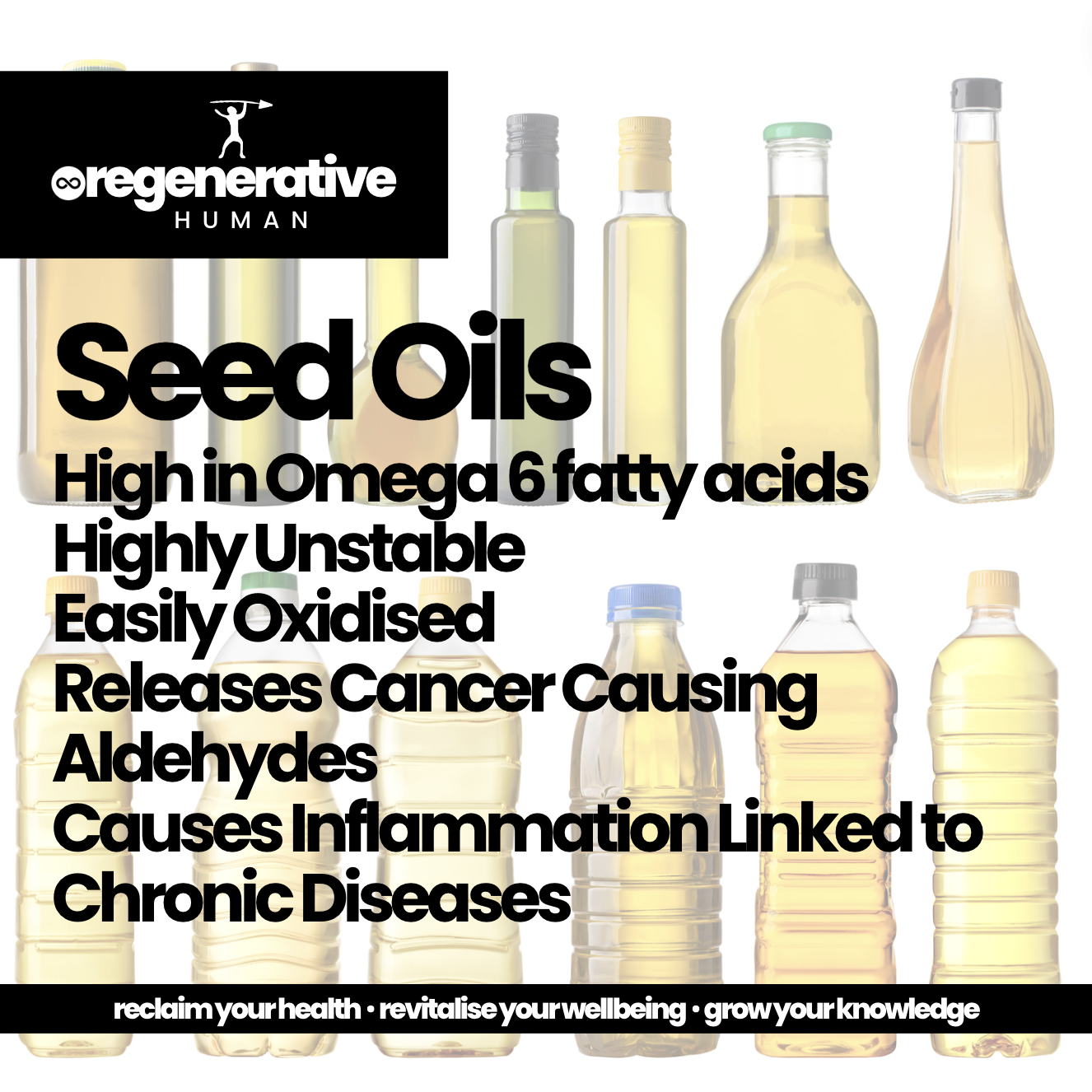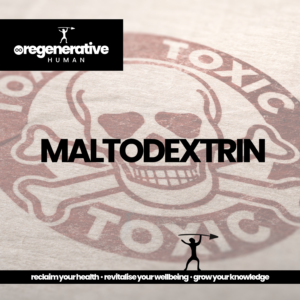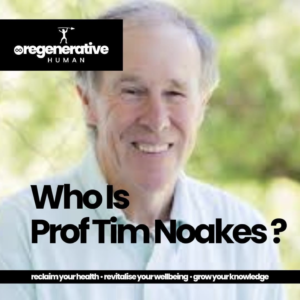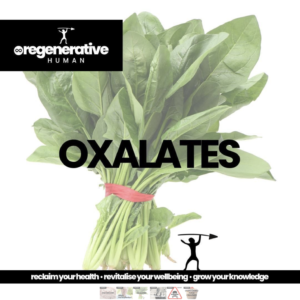Seed oils have been widely promoted as being “heart healthy” and are promoted as the ultimate alternative to saturated fats that are still wrongly being condemned for the rise in heart disease.
An array of issues
It wasn’t until the 1900’s that we saw the introduction of seed oils such as rapeseed (canola), soybean, corn, cottonseed, grapeseed, sunflower, rice bran and peanut oils referred to as “The Hateful Eight” in Dr Catherine Shanahan’s book Dark Calories, so we didn’t evolve eating them. This means biologically our bodies are unable to cope with them and as such they are causing an array of issues including autoimmune diseases, cancer, diabetes, cardiovascular disease, dementia, IBS, infertility, obesity to name just a few.
These oils are incredibly unstable, they oxidise easily when exposed to heat or light which creates trans fats and they produce toxins such as aldehydes (think cigarettes!) which cause inflammation within the body.
Also causing inflammation is the imbalance of omega-6 to omega-3 ratio which it creates in the body. Seed oils are very high in Omega-6 linoleic acid and whilst we do need omega 6 it throws the Omega-6 to Omega-3 ratio out of its optimal range. Ancestrally it’s thought that this ratio would have been around 1:4. It is now thought that the average person has a ratio up to as high as 1:15-20.
Furthermore, the vast majority of these oils are created from GMO crops. Industrial scale farming is used to create these crops with the use of chemicals which kill off all the microbes within the soil as well as all the worms and insects above and below the ground and vast amounts of wildlife that get caught up in the process as well as the loss of habitat. Without healthy soil, everything dies and the earth can no longer sequester carbon as it once did (but let’s blame the cows!)
So what should we use instead?
Butter, ghee, tallow, lard, organic coconut oil, olive oil (although olive oil can still oxidise at a high heat so it’s best used cold) or avocado oil (however avocados do come with their own set of environmental issues) are some of the best to use for cooking.
We also need to remember that these seed oils lurk everywhere, not just in ultra processed foods but even in more unsuspecting foods such as coating on dried fruit.
Just because these seed oils sound healthy, they are far from it. The processes they have to go through, including bleaching and deodorising as they smell so bad no human would go near them without these interventions are far from natural, even if they say they’re organic.
Remember if it comes from a plant it’s possibly ok, if it’s made in a plant and requires chemists to create it, it’s most likely not!





